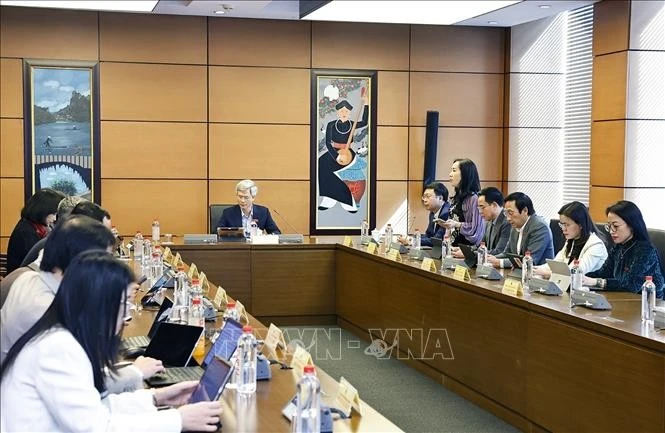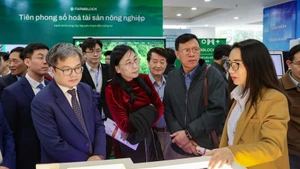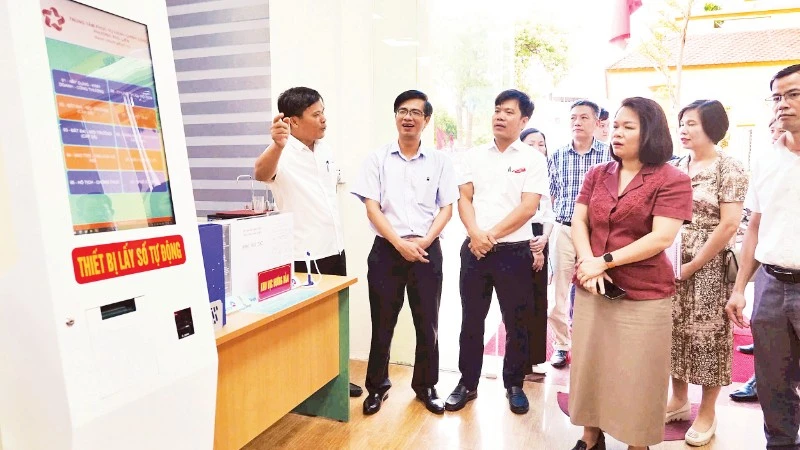They voiced strong support for the bill, considering it an essential, forward-looking framework for a technology that will shape Viet Nam’s competitiveness in the decades ahead. As countries are accelerating AI investment, the introduction of the law is deemed critical to prevent Viet Nam from falling behind and to enable the country to seize emerging technological opportunities, they held.
Deputy To Ai Vang of Can Tho city affirmed that the law is vital to national development and aligns with global trends. She cited Party targets such as maintaining Viet Nam’s position among the top three ASEAN countries in the Global Innovation Index; raising the digital economy’s share of GDP to around 20%; ranking among the region’s top three in AI development; and having at least five digital technology firms comparable to leading international companies.
"To meet these goals, we need a solid legal basis consistent with international practice, supportive of integration, and conducive to effective AI application," she said.
Deputy Nguyen Thi Tuyet Nga of Quang Tri province called for clearer definition of the law’s scope to avoid overlap with legislation on science, technology and innovation, and to ensure coherence with the draft Digital Technology Law and other relevant laws under debate.
The draft establishes a National Committee on Artificial Intelligence as an inter-sectoral body for directing AI strategy, policies and activities with the Ministry of Science and Technology as the focal point for implementation and oversight.
Nga argued that the draft does not clearly define the committee’s legal status, functions, powers, structure or operating mechanisms, nor does it authorise the Government to detail these provisions. She urged the drafting agency to justify the committee’s establishment and ensure alignment with ongoing efforts to streamline administrative structures.
She also highlighted the importance of Article 24 on human resources development, recommending the inclusion of policies to attract domestic and foreign AI experts to universities and promote collaboration between academia and industry.
The lawmaker stressed that the draft, comprising 36 articles, lacks provisions on prohibited acts. She argued that such bans are essential to prevent misuse, safeguard human rights and support fair competition, and proposed adding an article specifying prohibited behaviours.
Deputy Lo Thi Luyen from Dien Bien province raised concerns about children’s access to AI, noting that while some countries set a minimum age of 13, others do not impose limits despite worrying incidents.
She warned that unrestricted access could pose risks to children lacking sufficient awareness and asked the drafting agency to clarify its approach to this matter.
















